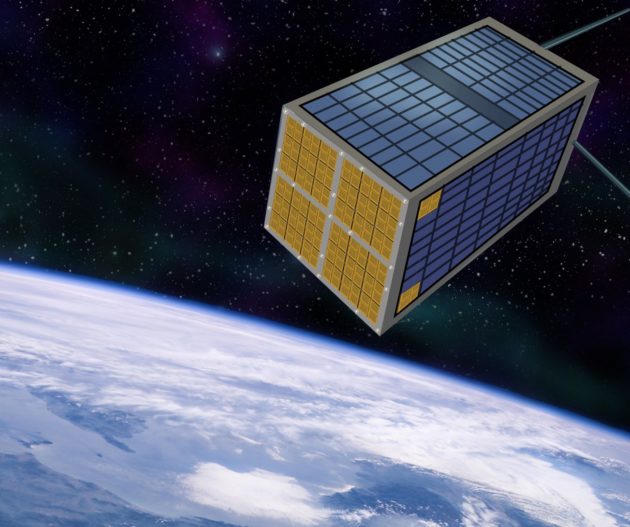
Boeing’s venture capital fund is leading a $3 million investment round for Accion Systems, a Boston-based startup whose electric propulsion system for satellites could get its next in-space test early as next month.
Joining Boeing HorizonX Ventures in the Series B round is GettyLab, a Bay Area venture fund focusing on innovations in science and technology.
Accion’s propulsion system is certainly innovative, and in line with the increased emphasis at Boeing and elsewhere on electric propulsion for space applications.
The Tiled Ionic Liquid Electrospray system, also known as TILE, makes use of a non-toxic, liquid propellant that’s pushed out, ion by ion, from arrays of thrusters the size of postage stamps. Ion drives are the stuff of science-fiction (as in “Star Trek”) as well as real-life space missions (such as NASA’s Dawn mission to Ceres). Accion’s TILE system is designed to be smaller, lighter and more cost-effective than traditional ion engines.
“Accion‘s scalable technology can help bring game-changing capabilities to satellites, space vehicles and customers,” Brian Schettler, managing director of Boeing HorizonX Ventures, said today in a news release. “Investing in startups with next-generation concepts accelerates satellite innovation, unlocking new possibilities and economics in Earth orbit and deep space.”
Boeing has been building satellites with electric propulsion for several years, but Accion’s TILE system should extend that capability to next-generation small satellites.
“Our TILE product family gives satellites greater capabilities, and at the size of a postage stamp, it fundamentally rewrites the relationship between mass and propulsion,” said Natalya Bailey, CEO and co-founder of the four-year-old MIT spinout. “Boeing’s aerospace leadership will help us deliver safer, higher performance next-generation propulsion systems to market for satellite and deep-space exploration applications.”
Accion has received annual contracts from the U.S. Department of Defense for the past three years, and the TILE system has already been tested in space twice. Two TILE-equipped, student-built nanosatellites belonging to California’s Irvine CubeSat STEM Program are due to be launched next month.
The Irvine 01 satellite is set to be sent into orbit by a Rocket Lab Electron rocket launching from New Zealand as part of a mission nicknamed “It’s Business Time.” Irvine 02 is one of the payloads scheduled for liftoff from California’s Vandenberg Air Force Base on a SpaceX Falcon 9 rocket, as part of Seattle-based Spaceflight’s dedicated riideshare mission.
The Irvine CubeSat STEM Program brings together more than 100 students from six high schools in California’s Tustin and Irvine School Districts. “Supporting efforts and inspiring students to get excited about STEM and space technology is an exercise in ‘paying it forward’ for all of us,” Bailey said when the project was announced in June.
Boeing HorizonX is the aerospace company’s channel for investing in advanced technologies with potential aerospace applications, ranging from 3-D printing to artificial intelligence.



